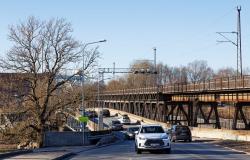Opinions This is a debate post. The post expresses the writer’s views.
Democracy can in no way be taken for granted, as both the present and history show. Democracy is, among other things, about distance between those in power and the people they govern on behalf of, not least in municipal politics. Provision should therefore be made for local democracy with opportunities for influence and involvement also in the periods between election days.
How is the situation in Bergen when it comes to local democracy? In summary, there is not much to brag about after parliamentarism was introduced in 2000 as the city’s political governance model. The city council politicians have chosen to be without a district committee for most of this period, which has probably led to the fact that central power in the town hall quarter has not had the best decision-making basis for its decisions in a good number of cases.
Nationally, political governance also takes place in the form of parliamentarism, and the idea that the Storting should decide that the country does not need political bodies at municipal and county level probably seems a bit foreign to many of us. But here in Bergen, with close to 300,000 inhabitants, it is considered irrelevant to have political meeting places locally in the districts, each of which measured in terms of population can be compared to the country’s medium-sized cities.
Here in Bergen, with close to 300,000 inhabitants, it is considered irrelevant to have political meeting places locally in the districts.
Henry Berg (Ap)
In 1972, Bergen municipality was last expanded by being merged with the municipalities of Åsane, Fana, Laksevåg and Arna. 52 years later, it must be a cross of thought that they have still not managed to establish a lasting and stable near-democratic system in what were previously separate municipalities, and which after the merger became districts.
The last period with a district committee in Bergen was 2008-2010. It ended with city councilor Monica Mæland not proposing funds for the scheme in the 2011 budget, which was followed up by a majority in the city council. The majority of the city council’s justification for doing this was, among other things, that the committees’ authority was limited. What must not be forgotten is that it is precisely the city council that determines the tasks and authority of the district committees.
What if this was included in the assessments before closing down?
The Labor Party was one of the parties in the city council that voted against the closure of the committees from 2011, and in 2015 the party voted for the reintroduction of the district committees. The party won the election by a solid margin, and the incoming city councilor Harald Schjelderup eventually started work on re-establishing the system of district committees. The progress of the work looked promising for a long time. But after Schjelderup stepped down as city council leader in the spring of 2019 and Roger Valhammer came in as a replacement, work on introducing the scheme went noticeably slower. In the run-up to the 2023 election, it came to a complete halt, then with city councilor Rune Bakervik at the helm.
For us AP members, who have faith in local democracy, the consolation can be that the Labor Party promised voters for the third local election in a row in 2023 that the party will reintroduce district committees during the election period. The election in 2023 ended with Christine Meyer from the Conservative Party taking over as city council leader, which does not give much reason to believe that local democracy in the districts will be prioritized. The right’s last registered position in the debate on this topic is relatively manageable. It involves placing benches in the districts where the city council politicians can sit and answer questions and receive input from the local population.
Well, it is perhaps not so strange that the Conservative Party has faith in such an arrangement as the mainstay of the city’s local democracy. It could be that they have been inspired by Herman Friele, who in his time as mayor tried out the “bench arrangement” at Torgallmenningen. But perhaps other position and support parties in the city council are more offensive on this issue than the Conservative Party. And then I think primarily of the Center Party, which constantly emphasizes how important it is to listen to people where they live.






